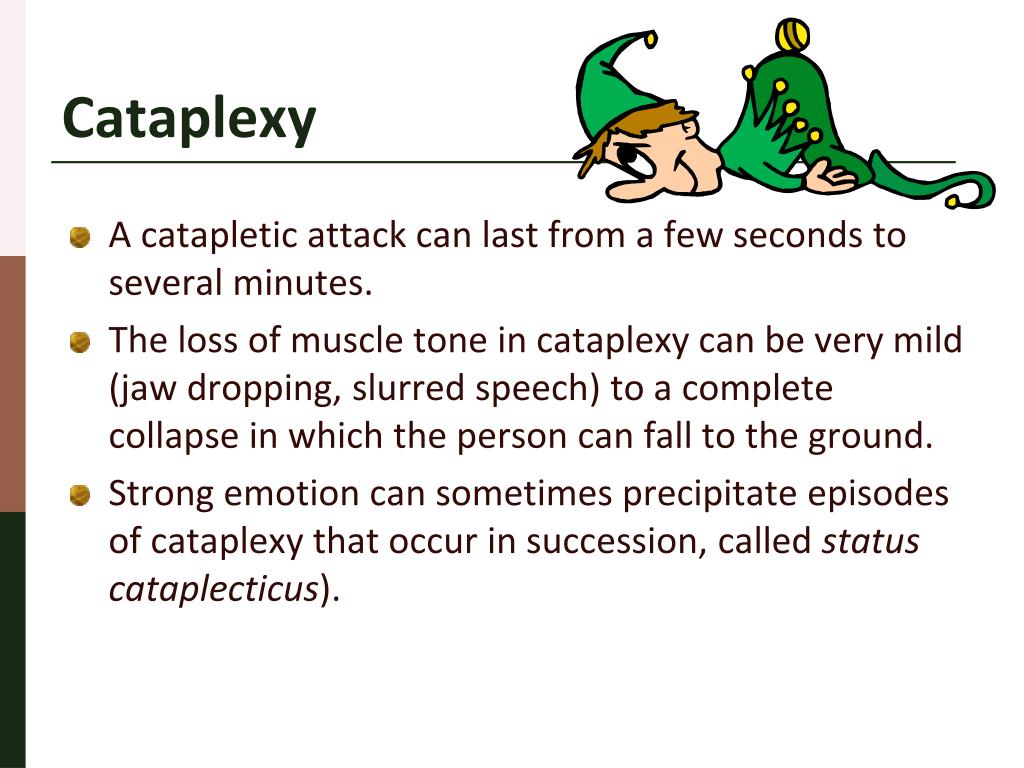

They can help you get your symptoms under control with treatment. Once you know which situations tend to bring on your cataplexy symptoms, you can avoid them or be better prepared to manage them. The right medication for you depends on the underlying reason for your cataplexy. Some of them are:Ī very small study suggests that a drug called tropatepine shows promise when standard meds don’t improve cataplexy. Medications help some people have fewer episodes of cataplexy. If your doctor thinks you might have cataplexy, they may try to confirm it by doing tests that track your sleep overnight and check on how sleepy you are during the day. What’s your sleep routine like? Are you tired during the day?.How often do you have symptoms, and how long do they last?.There’s no specific test to spot cataplexy, so doctors usually start by asking you about your symptoms. A rare side effect of the insomnia drug suvorexant.Genetic disorders such as Niemann-Pick type C disease, Prader-Willi syndrome, and Angelman syndrome.When that happens, cataplexy is linked to things like: It’s also possible to have cataplexy without narcolepsy. If you have narcolepsy with cataplexy (also known as type 1 narcolepsy), that loss of orexin may be tied to: That hormone plays a key role in the sleep-wake cycle. But most people who have narcolepsy with cataplexy show a sign that doctors can spot with tests: a loss of brain cells that make a hormone called orexin, also called hypocretin. What Causes It?Įxperts are still looking into that question. They may have mild weakness in their muscles for hours after the episode, too. When a child has cataplexy, they could show signs like: It’s highly unlikely that you’d collapse and fall flat on your face, though. You remain conscious while it’s happening. For example, your eyebrows might droop, and your speech might slur.Ī severe bout of cataplexy could make you slump down and lose your ability to move, talk, or keep your eyes open for a few minutes. Those can involve a brief feeling of minor muscle weakness in your face, neck, or arms. What Are the Symptoms?Ĭataplexy symptoms can range from mild to severe. When something triggers your cataplexy, you might feel the weakness build up in your affected muscles for several seconds before it fully kicks in. Negative emotions like frustration, anger, stress, or fear can set it off, too, but less often. Strong, feel-good emotions tied to things like laughter, joking, and pleasant surprises tend to trigger cataplexy. An episode usually lasts just a few minutes and goes away on its own.

Others have symptoms up to 20 times a day. Some people have an episode of cataplexy just once or twice in their lives. It can happen in people living with the sleep disorder narcolepsy. Cataplexy is a condition that brings on brief bouts of muscle weakness or paralysis.


 0 kommentar(er)
0 kommentar(er)
